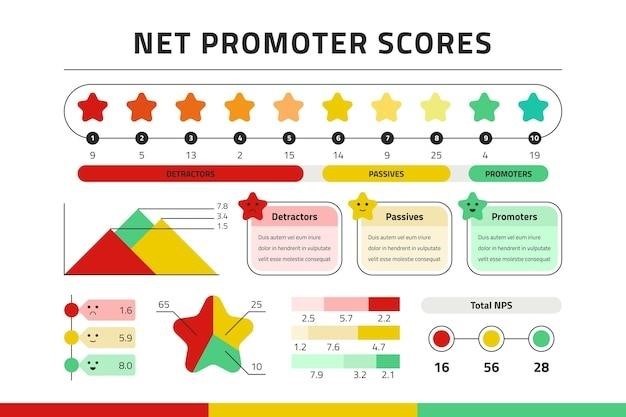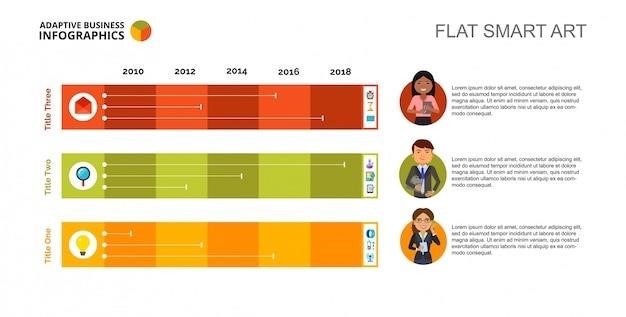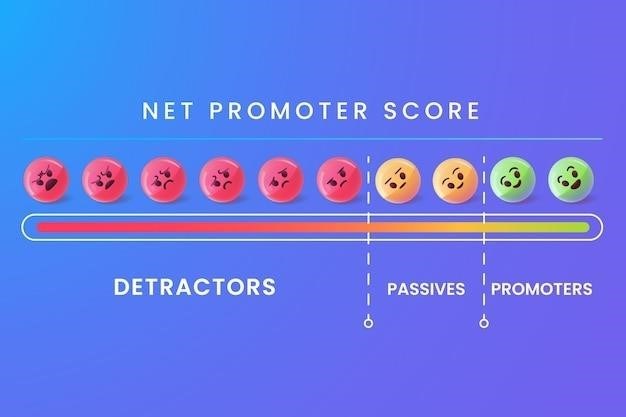Session Rating Scale (SRS)⁚ A Comprehensive Overview
This overview explores the Session Rating Scale (SRS)‚ a concise‚ four-item measure assessing therapeutic alliance quality. Widely used in psychotherapy‚ the SRS provides valuable client feedback‚ aiding treatment planning and outcome evaluation. Numerous studies validate its psychometric properties and effectiveness in various settings. Available as a PDF‚ it’s a key tool in Feedback-Informed Treatment (FIT).
What is the Session Rating Scale (SRS)?
The Session Rating Scale (SRS) is a widely utilized‚ brief assessment tool employed in psychotherapy. Designed as a simple‚ four-item visual analogue scale‚ it efficiently gauges key aspects of the therapeutic relationship; Clients provide feedback on their experience during a therapy session‚ rating elements like the helpfulness of the session and the quality of the therapeutic alliance. Often found as a readily accessible PDF‚ the SRS facilitates quick and easy administration‚ making it practical for busy clinicians. Its straightforward design and brevity contribute to its popularity‚ enhancing client engagement and streamlining the feedback process. The SRS’s focus on the collaborative nature of therapy makes it valuable in understanding the client’s perspective and improving the therapeutic experience. The simplicity of the scale contributes to its widespread use and acceptance among both therapists and clients. The widespread availability of the SRS as a PDF makes it easily accessible to practitioners and researchers alike.
SRS⁚ Purpose and Application in Psychotherapy
The primary purpose of the Session Rating Scale (SRS) is to gather client feedback on the therapeutic process. This feedback is crucial for enhancing the quality of care and fostering a strong therapeutic alliance. By providing a structured method for clients to express their perceptions‚ the SRS empowers them to actively participate in their treatment. The data collected through the SRS serves several vital functions. It helps therapists identify aspects of the session that were particularly helpful or areas needing improvement. This information can be integrated into treatment planning‚ adapting the approach based on client responses. Moreover‚ the SRS plays a significant role in the Feedback-Informed Treatment (FIT) model‚ enabling therapists to continuously monitor and refine their practice; This iterative process ensures that treatment is tailored to the unique needs and preferences of each client‚ ultimately promoting better outcomes. The SRS’s application extends beyond individual therapy‚ proving useful in group therapy and other therapeutic settings. Its adaptability makes it a valuable tool for a wide range of mental health professionals.
The Structure and Components of the SRS
The Session Rating Scale (SRS) typically consists of four key components‚ each designed to assess a distinct aspect of the therapeutic experience. These components are often presented as visual analogue scales‚ allowing clients to rate their perceptions along a continuum. A common structure involves four separate scales‚ each focusing on a specific dimension of the therapeutic relationship and session. These dimensions often include the client’s perception of the helpfulness of the session‚ the quality of the therapeutic relationship‚ the clarity of the session’s goals and how well the session addressed those goals‚ and the overall experience of the session. The scales are usually presented as lines with anchors at either end representing opposing extremes. Clients indicate their ratings by marking a point on the line. This simple yet effective structure facilitates easy administration and interpretation. The brevity of the SRS ensures minimal burden on the client‚ maximizing the likelihood of accurate and honest responses. The clear‚ unambiguous nature of the scales minimizes ambiguity and ensures consistent responses across clients. Variations exist‚ but the core principle of concise‚ focused assessment remains consistent across all versions.
Key Dimensions Assessed by the SRS
The Session Rating Scale (SRS) focuses on key aspects of the therapeutic relationship and session experience. Central to its design is the assessment of the therapeutic alliance‚ gauging the client’s perception of the connection and collaboration with their therapist. This includes elements like feeling understood‚ respected‚ and supported by the therapist. Another crucial dimension is the perceived helpfulness of the session‚ reflecting the client’s subjective experience of progress and benefit. This goes beyond simply liking the therapist; it measures if the client feels the session contributed positively to their goals. Furthermore‚ the SRS often explores the clarity of session goals and how effectively the session addressed those goals. This assesses the client’s understanding of the therapeutic direction and their perception of progress towards their objectives. Finally‚ an overall evaluation of the session’s quality and impact is often included‚ capturing a holistic view of the client’s experience. These diverse aspects provide a rich understanding of the therapeutic process from the client’s perspective.
Variations of the SRS⁚ Child Session Rating Scale (CSRS) and Others
While the standard Session Rating Scale (SRS) is widely used for adult clients‚ adaptations exist to suit diverse populations. A notable variation is the Child Session Rating Scale (CSRS)‚ specifically designed for use with children and adolescents. The CSRS often simplifies language and presentation to ensure comprehension and engagement from younger clients. This adaptation acknowledges the developmental differences in how children might articulate their therapeutic experience‚ making the feedback process more accessible and accurate. Furthermore‚ the CSRS might also incorporate input from parents or guardians‚ recognizing the important role they play in a child’s treatment. Beyond the CSRS‚ other variations might cater to specific therapeutic approaches or clinical settings. For example‚ specialized versions might be employed in group therapy‚ focusing on the group dynamic and the individual’s experience within that context. These tailored instruments maintain the core principles of the SRS while accommodating the unique needs and characteristics of diverse populations.
Utilizing the SRS in Practice
Practical application of the SRS involves straightforward administration and insightful interpretation of client feedback. Integrating this data into treatment planning enhances therapy effectiveness and client outcomes.
Administering the SRS⁚ Practical Guidelines
Administering the Session Rating Scale (SRS) is a straightforward process designed for ease of use in clinical settings. The SRS‚ often available as a PDF‚ typically consists of four simple questions‚ presented as visual analogue scales or Likert-type items. These questions assess key aspects of the therapeutic relationship‚ such as the client’s perception of the therapist’s helpfulness‚ the collaborative nature of the session‚ and the overall quality of the interaction. It’s crucial to explain the purpose of the SRS clearly to the client‚ emphasizing that their honest feedback is valuable and will be used to improve the therapeutic process. The administration should take only a few minutes‚ ensuring it doesn’t disrupt the flow of the therapy session. After completion‚ the therapist should review the responses and discuss them with the client if appropriate‚ fostering open communication and a collaborative approach to treatment. The simplicity of the SRS and its concise format make it a practical tool that easily integrates into standard clinical workflows. Remember to ensure client confidentiality and adhere to ethical guidelines when handling the collected data.
Interpreting SRS Results⁚ Understanding Client Feedback
Interpreting the Session Rating Scale (SRS) results requires a nuanced approach‚ going beyond simply looking at numerical scores. While the scores provide a quantitative measure of the client’s experience‚ the therapist should also consider the qualitative context. Low scores on specific items might indicate areas needing attention. For example‚ consistently low ratings on collaboration might suggest a need for greater client involvement in session direction. Conversely‚ high scores across all items suggest a strong therapeutic alliance. However‚ even with high scores‚ exploring the “why” behind the ratings can offer valuable insights. A client might rate a session highly but still express concerns about specific aspects. This highlights the importance of open communication and a collaborative discussion of the SRS results‚ using the feedback as a springboard for improving the therapeutic process and strengthening the therapeutic relationship. The SRS is a tool to enhance understanding‚ not a definitive judgment of therapy effectiveness.
Integrating SRS Data into Treatment Planning
Integrating Session Rating Scale (SRS) data effectively enhances treatment planning by providing direct client feedback on the therapeutic process. Analyzing the SRS results allows for a collaborative adjustment of treatment strategies. For example‚ consistently low ratings on the “helpfulness” item might indicate the need to explore alternative therapeutic approaches or adjust treatment goals. Similarly‚ low scores on the “relationship” item could necessitate a focused discussion on the therapeutic relationship‚ exploring potential barriers or misunderstandings. The SRS data should be integrated into the overall clinical judgment‚ not used in isolation. The therapist’s clinical expertise and understanding of the client’s unique context are crucial. By incorporating client feedback and using the SRS as a guide for modifications‚ therapists can foster a more collaborative and effective treatment process‚ ultimately leading to improved outcomes. Regular use of the SRS ensures ongoing evaluation and refinement of the treatment plan based on the client’s evolving needs and experiences.

The SRS and Research
Extensive research supports the Session Rating Scale’s (SRS) validity and reliability. Studies demonstrate its use in outcome studies‚ meta-analyses‚ and Feedback-Informed Treatment (FIT)‚ showcasing its value in improving therapeutic effectiveness.
The SRS in Outcome Studies and Meta-analyses
The Session Rating Scale (SRS) has played a significant role in numerous outcome studies and meta-analyses within the field of psychotherapy. These studies consistently demonstrate a strong correlation between positive client ratings on the SRS and successful treatment outcomes. Meta-analyses‚ in particular‚ have highlighted the SRS’s ability to predict treatment success across various therapeutic modalities and client populations. By incorporating client perspectives on the therapeutic alliance‚ the SRS adds a crucial layer of understanding to the overall effectiveness of interventions. This data not only contributes to a more comprehensive evaluation of treatment success but also helps identify factors that contribute to positive therapeutic experiences. The SRS’s inclusion in research has broadened our understanding of the therapeutic process and enhanced the development of evidence-based practices. The simple yet insightful nature of the SRS makes it a powerful tool for both clinical practice and research‚ contributing significantly to the advancement of psychotherapy.
Validation Studies and Psychometric Properties of the SRS
Rigorous validation studies have established the Session Rating Scale’s (SRS) reliability and validity as a measure of the therapeutic alliance. These studies have consistently demonstrated high internal consistency reliability‚ indicating that the four items of the SRS measure a coherent construct. Furthermore‚ research has shown strong convergent validity‚ with SRS scores correlating significantly with other established measures of therapeutic alliance. Factor analysis has supported the unidimensionality of the scale‚ suggesting that the SRS effectively captures a single‚ unified concept of alliance quality. The SRS’s brevity and ease of administration contribute to its practicality in clinical settings‚ while its robust psychometric properties ensure the accuracy and meaningfulness of the data it generates. These findings underscore the SRS’s suitability for use in both clinical practice and research endeavors focused on understanding and improving the therapeutic relationship.
The Role of the SRS in Feedback-Informed Treatment (FIT)
The Session Rating Scale (SRS) plays a crucial role within the Feedback-Informed Treatment (FIT) model. In FIT‚ regular client feedback is central to guiding treatment decisions and enhancing therapeutic effectiveness. The SRS‚ with its simple and quick administration‚ allows for efficient collection of this crucial data. Client responses to the SRS provide therapists with valuable insights into the client’s perception of the therapeutic relationship‚ including factors like the therapist’s empathy‚ collaboration‚ and helpfulness. This real-time feedback enables therapists to make necessary adjustments to their approach‚ strengthening the therapeutic alliance and ultimately improving treatment outcomes. By integrating SRS data‚ therapists actively involve clients in the treatment process‚ fostering a collaborative and empowering therapeutic experience. The SRS’s integration into FIT highlights its value as a dynamic tool for optimizing therapeutic effectiveness.

Resources and Further Information
Locate SRS PDFs and related materials through online searches and professional databases. ResearchGate and other academic platforms offer access to relevant research articles on the SRS and its applications in psychotherapy.
Where to Find SRS PDFs and Related Materials
Securing official Session Rating Scale (SRS) PDFs might require navigating various online avenues. A direct search on established academic databases like ResearchGate often yields results‚ including research papers utilizing the SRS and potentially offering supplementary materials or links to the scale itself. Websites of organizations focused on psychotherapy or mental health may also host resources‚ including the SRS in PDF format. Remember to carefully verify the source’s credibility to ensure you’re accessing a legitimate and validated version of the scale. Some publishers specializing in psychological assessment tools may directly offer the SRS for purchase or download; checking their online catalogs is worthwhile. Be aware that freely available versions might be modified or adapted versions; always confirm the source’s legitimacy before use. Exploring relevant professional journals’ online archives can uncover articles using the SRS‚ potentially providing access to supplemental materials or contacting the authors for further information. Directly contacting researchers who frequently employ the SRS in their work could also prove helpful in obtaining access to a PDF or related resources.
Accessing Research Articles on the SRS
Numerous research articles exploring the Session Rating Scale (SRS) are readily available through various online academic databases. PubMed‚ PsycINFO‚ and Google Scholar are excellent starting points for comprehensive searches. Using keywords like “Session Rating Scale‚” “SRS‚” “therapeutic alliance‚” “client feedback‚” and “outcome measurement” will refine your search results. Many articles detail the SRS’s psychometric properties‚ validation studies‚ and applications in diverse therapeutic settings. These resources often provide insights into the scale’s reliability‚ validity‚ and effectiveness in predicting treatment outcomes. Remember to filter your search by publication date to prioritize recent studies reflecting the most up-to-date research and findings on the SRS. University library databases often provide access to a wider range of scholarly journals‚ potentially uncovering articles not accessible through free online searches. Exploring the bibliographies of relevant articles can lead to additional publications utilizing or referencing the SRS‚ further enriching your understanding of its use and implications in psychotherapy research.
